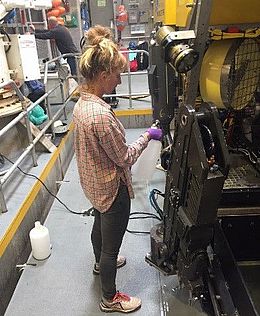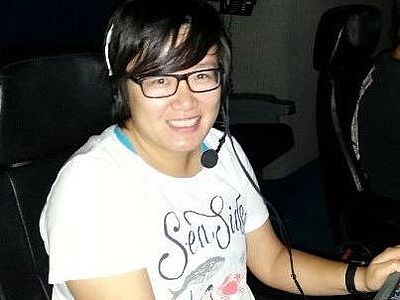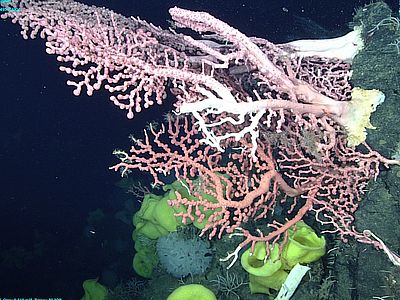The Dark Ocean Biosphere exists in a different energy dynamic than what we know from our own sunlit lives and it is encountered using robots and submersibles like JAGO (research theme photo) or Doc Ricketts (Fig. 1 and Fig. 2). The deep sea consists of microbial environments in the aphotic pelagic water column and in sediments, pore waters, hydrothermal vents and the upper basaltic crust. Depending on the quantity of particulate matter in the water, levels of sunlight sufficiently high to enable photosynthesis penetrate only a few tens to hundreds of meters into the ocean. In the mesopelagic “twilight zone” (200m – 1000 m) and completely dark realms of the bathypelagic water layers (1000m – 4000 m) the sources for organic material fueling the metabolism of deep oceanic microbes are not obvious – allowing for exciting discoveries that are fundamentally changing our understanding of the role of the dark ocean in the global Earth system and its biogeochemical cycles!
In OEB we examine microbes involved in organic matter cycling and biogeochemistry in the ocean, especially of the elements carbon, nitrogen, sulfur and non-protein organic compounds like vitamins. We also study multicellular eukaryotic animals, like corals (Fig. 3, 4) and zooplankton! We aim to understand the structure and dynamics of natural microbial communities – from the single cell level to organismal interactions and communities, including microbiomes, — that collectively comprise the biota of these dark environments.





